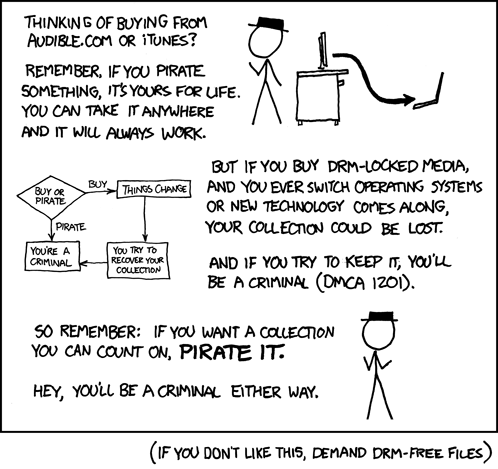Harriet bloody Harman made me write to my MP, Jim Fizpatrick, today. FWIW.
Dear Mr Fitzpatrick,
Given your comfortable majority I doubt you’ll be too worried at the loss of one vote, but can I briefly give you my reasons why I, as a lifelong Labour voter, could not vote for you at the last election and will not be able to do so next time either?
I was never too worried about civil liberties until a few years ago. I’d actually be happy if there was a national identity card, for instance. I don’t think I’m a paranoid libertarian nutter (fingers crossed). But I was dismayed by a number of measures introduced by the last Labour government starting in the climate of fear whipped up after the major terrorist incidents of 2001 and 2005.
Successive Labour Home Secretaries seemed to want to prove themselves more macho than their predecessor, and more tough on crime (rather than its causes) than the Opposition. Police were given more powers and used them to kettle protestors and prevent photography in public places. The UK acquiesced in the torture and long-term imprisonment without trial of British citizens. All this was not something that affected me personally so I noted it without allowing it to change my long-term loyalty to the party.
But then in the dying days of the government the Digital Economy Bill was introduced and passed without adequate debate. If there had been time to organize a coherent opposition to it then it would probably have suffered the same fate as the US SOPA and PIPA bills. But despite the help of people like Tom Watson, it was not possible to raise public awareness of the consequences of passing this bill until too late. It became the Digital Economy Act, the party lost the election (for unrelated reasons sadly) and we were stuck with it.
By contrast with the policing and security measures, the Act deals with something I know a little about: technology and the internet. I am a former technology director of an investment bank and am now the Chief Technology Officer of a financial services startup company.
My company’s success depends on being able to respond in an agile way to the changing business environment. We can do this much faster than large corporates, however much they spend on R&D. We can certainly do this much faster than regulators and legislators, no matter much lobbyists spend on influencing them. But we are left standing by the bad guys, who can innovate before a legislator has even heard of the problem.
My contention is this:
- It's not possible to anticipate everything the bad guys might do, so you can't legislate for their future exploits.
- If you write over-broad legislation to counter this problem then you stifle legitimate business and prevent beneficial innovation.
- If you give broad powers to law enforcement agencies they will use them for purposes for which they were not originally intended. Sad but true.
- The law already makes crime criminal. More law will not actually change this.
- The central problem is a failure of established businesses to give the customer what they want nowadays.
The last point is key. Perhaps I could include some comparisons between the user’s experience of piracy compared to a legitimate purchase:


Just to reiterate, I’m not supporting piracy. I’m saying if the content owners gave customers what they wanted, made it as easy as pirating it, and didn’t try to retain an inappropriate level of control over what the customer did with the content then they might still have a business model.
I could go on; I’m quite angry about this. The Digital Economy Act will have no effect on piracy (or child pornography or anything else it’s supposed to fix). I can think of ten ways of defeating its measures, so the bad guys can doubtless think of 100. Harriet Harman (and by implication your party) appears still to think otherwise: https://j.mp/zyvlFC
The Digital Economy Act reinforces the principal of a censored internet and adds disconnection for suspected infringers. What legislators should actually be doing is ensuring a free internet with access provided on a the same basis as other utilities.
I’d vote for a party that supported that.
Regards,
Dominic Sayers